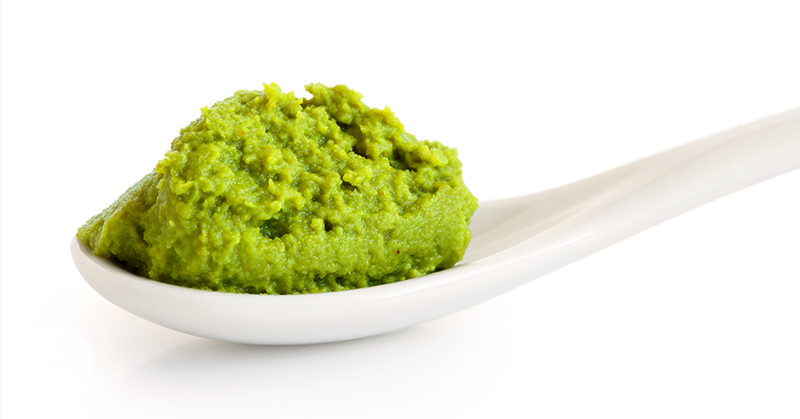A woman in Israel has become the first person ever to get”broken heart syndrome” from food after mistaking a big blob of wasabi for a normal-sized portion of harmless avocado.
The woman in her late-sixties showed up to the emergency room with chest pains after attending a wedding, doctors report in BMJ Case Reports. During the party, she saw what she thought was avocado dip on the table and ate some. Unfortunately, as her taste buds confirmed and her chest pains later corroborated, it was in fact a “large amount” – around the size of a teaspoon – of wasabi paste (a “hot” Japanese root vegetable in the same family as mustard and radish).
Five minutes later, she started to feel a sudden pressure in her chest, which radiated into her arms. This lasted for several hours, but she decided to stay at the wedding, and eventually, the pain began to die down. The next day, however, she felt uncomfortable and weak, so sought out medical attention.
Doctors ruled out heart failure, but an ECG showed dysfunction in her left ventricle. She had “broken heart syndrome“.
“Takotsubo cardiomyopathy, also known as ‘broken heart syndrome’, is a left ventricular dysfunction that typically occurs in older women after sudden intense emotional or physical stress,” the authors explain in the case report.
Broken heart syndrome temporarily affects the heart’s ability to pump blood around your system efficiently, causing symptoms similar to those of a heart attack. It was first documented more than 20 years ago by Japanese researchers. It’s usually brought on by severe psychological or physical stress, and was first recognized in women who had experienced an emotionally traumatic event, such as the death of a spouse, although it has also been documented in people who experience all sorts of emotional trauma. A 61-year-old woman from Texas was diagnosed with the condition following the death of her dog in 2017.
Its official name also has an unusual meaning. “The left ventricle shows global dilation with basal contraction, forming the shape of the narrow-necked jar used in Japan to trap octopuses (takotsubo).”
The researchers suggest this is the first time the condition has been triggered by food consumption alone. Previous reports have described food-related takotsubo as caused by anaphylaxis (a serious allergic reaction), not the food itself.
“To the best of our knowledge, this is the first report of takotsubo cardiomyopathy triggered by wasabi consumption,” the authors said in the study.
The condition is considered fairly benign – though complications such as pulmonary edema and arrhythmias can occur – and the woman recovered well after being treated with ACE inhibitors and beta blockers. She was discharged and recovered fully within a month.

